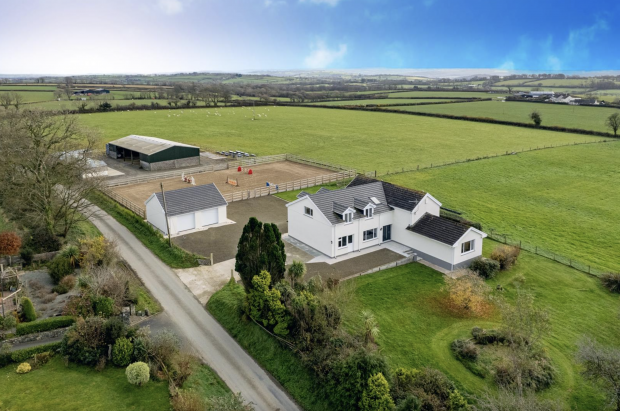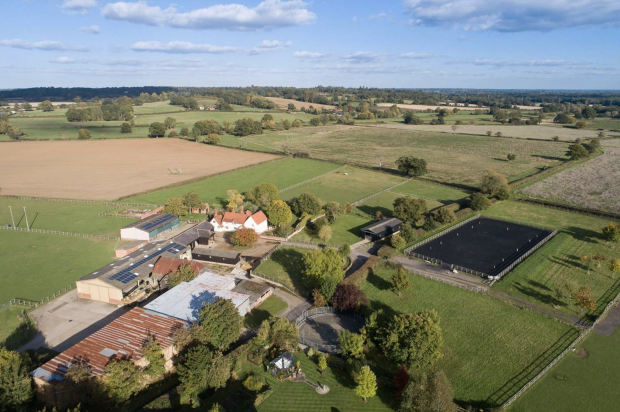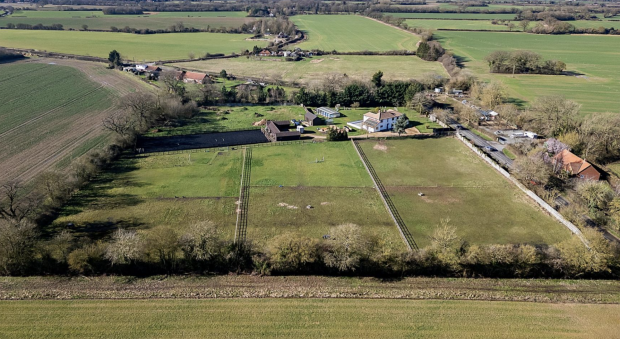After years of rapid growth, the Irish property market defies prediction. Some operators, such as local bank Permanent TSB, say that it has now cooled down, while others are confident that the market will continue to perform well in the future.
“With the competitive interest rate and the amendments in the rate of stamp duty in the last budget, price inflation in Ireland remained above trend in the first quarter of the year,” says Marian Finnegan, chief economist at Sherry Fitzgerald estate agents, who forecasts an annual increase of 16%.
In the equestrian sector, many agents share Finnegan’s optimism.
“It’s been good this year. The biggest increases are in the Thoroughbred and sport horse market, but plenty of people also want land for a few horses,” says Celia Lamb of Ganly Walters.
Whichever way the market goes, Ireland remains an attractive choice for British buyers, not least because they enjoy a favourable exchange rate with the euro.
“Many buyers come from Britain,” says Charles McCarthy of the eponymous estate agent. “Many commute from Ireland because they want to bring their families up in the countryside. They earn their money in sterling and live in euros.”
Although prices in Dublin rival those on the other side of the Irish sea, an average non-equestrian home anywhere else on the Emerald Isle costs €224,366 according to Permanent TSB.
Homes with land are somewhat more expensive, especially in counties like Wicklow, which are within commuting distance of the capital. But prime horse country such as northern Cork and southern Tipperary is dramatically cheaper and, although popular, still offers good value for equestrian money.
“Prices down in Cork are about half of what you’d have to pay in Dublin,” says Stephen Jeffery, a buying agent for The Property Finders. “For €600,000, for example, buyers can secure a four or five-bedroom farmhouse in Co Cork set in 10 or 20 acres with stables and outbuildings.”
The good news is that the market for top yards and equestrian properties in the area has slowed down over the past few months, making it a buyers’ market.
“At about €600,000 you have a cut-off point. Below that, there is great demand and not enough supply,” says Jeffery. “Above it, there are fewer buyers than before. It’s a good time to buy at the higher end.”
Ireland offers other advantages beyond having lower property prices. It has almost more horses than people. Hunting is still legal, although Lamb warns: “Irish packs are full and if you want to become a member you have to own land.”
On the downside, stamp duty is “vicious,” according to Jeffery, who says it is “one of the biggest off-putters” for British buyers.
First-time buyers are exempt from stamp duty if they buy a home costing up to €317,500 — but they only qualify if “they have not previously purchased or built a house or apartment anywhere in the world” and intend to make their Irish home their main place of residence. On the plus side, Ireland has no council tax on residential property and, in some areas, no water rates.
The buying process there also differs. “Once an offer has been accepted you put down a 5% deposit and the house is taken off the market, so you have no fear of being gazumped,” explains Jeffery.
After that, it becomes similar to Britain. “You pay 10% at exchange and the rest at completion,” says Jeffery. “It takes about three months from start to finish and you need an Irish solicitor.”
|
||
 |
||


 Get up to 19 issues FREE
Get up to 19 issues FREE TO SUBSCRIBE
TO SUBSCRIBE 



